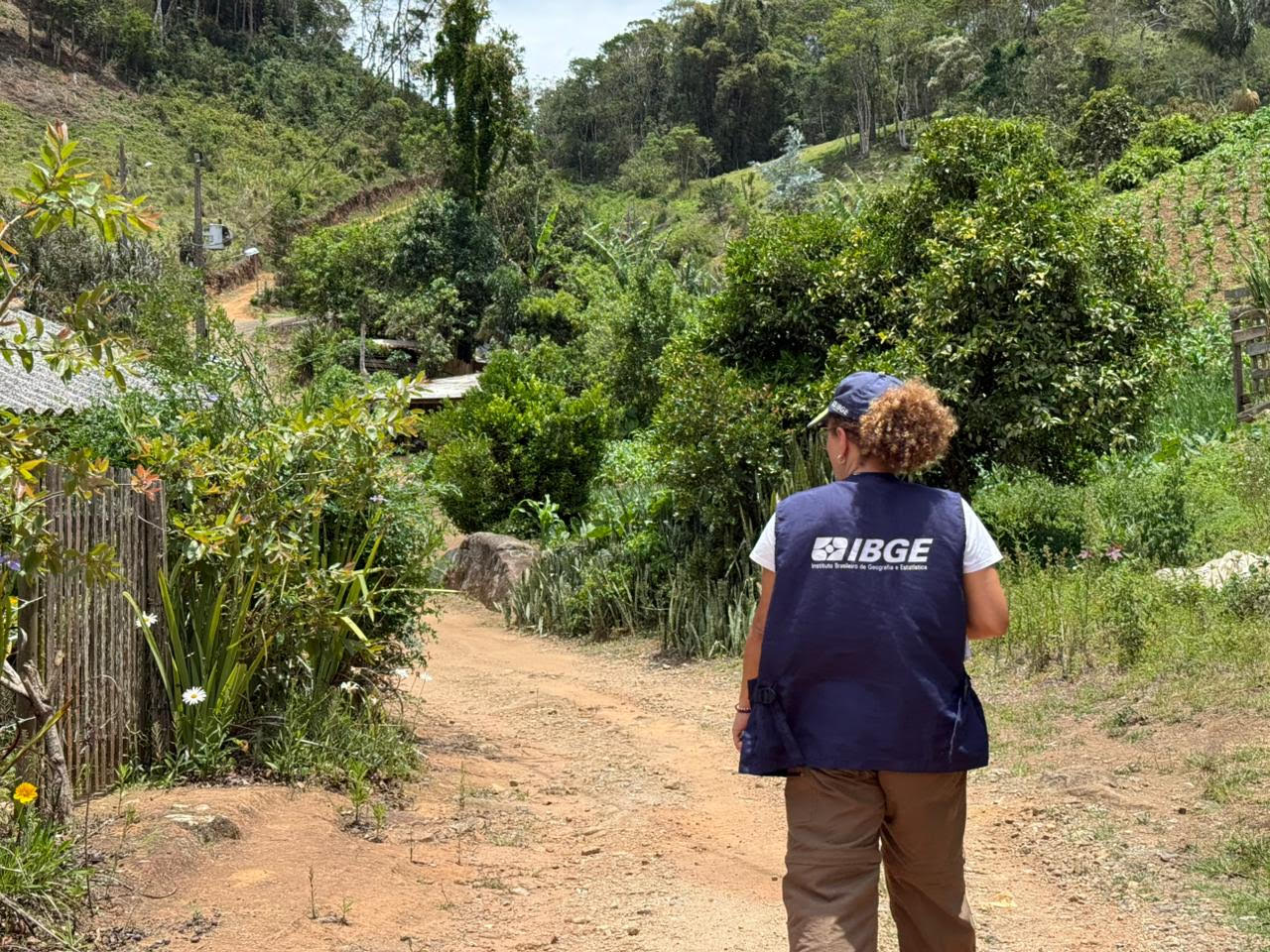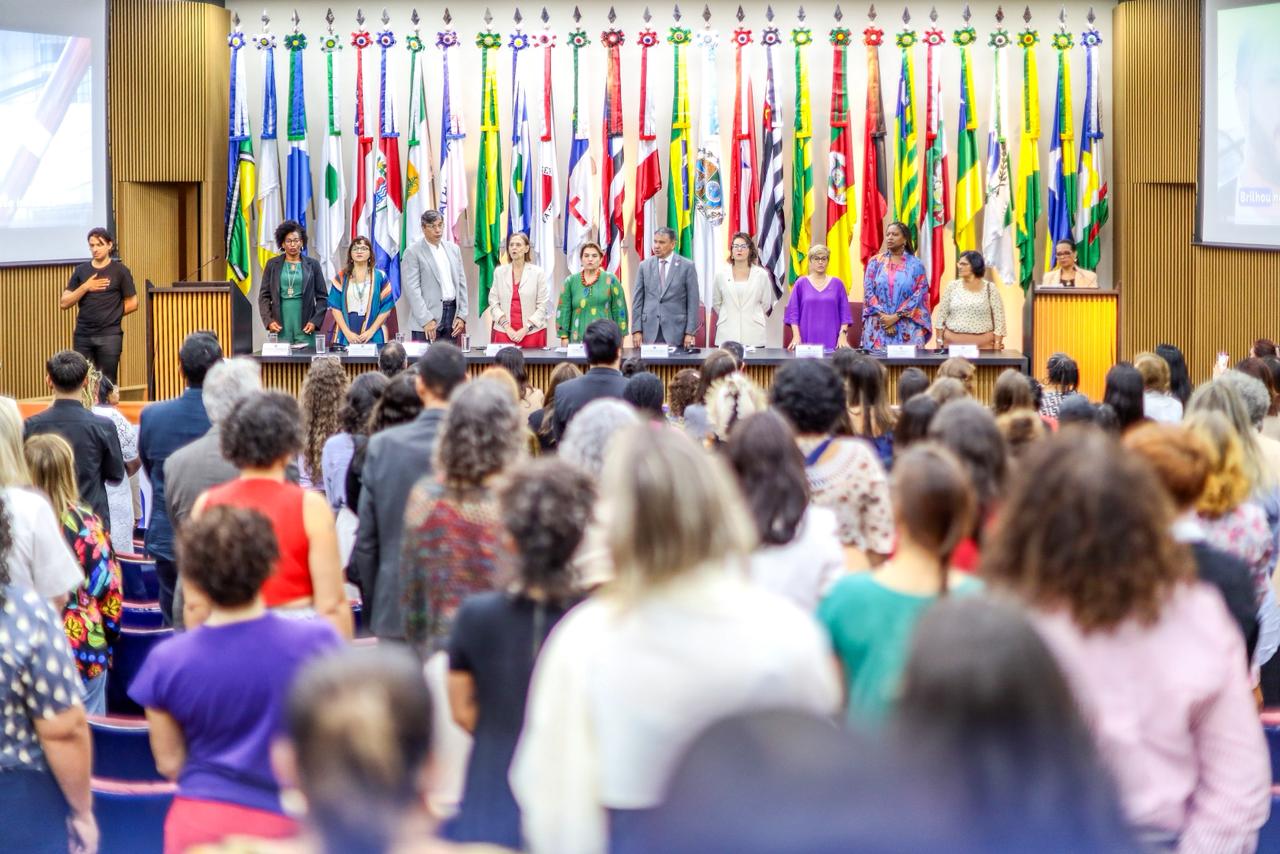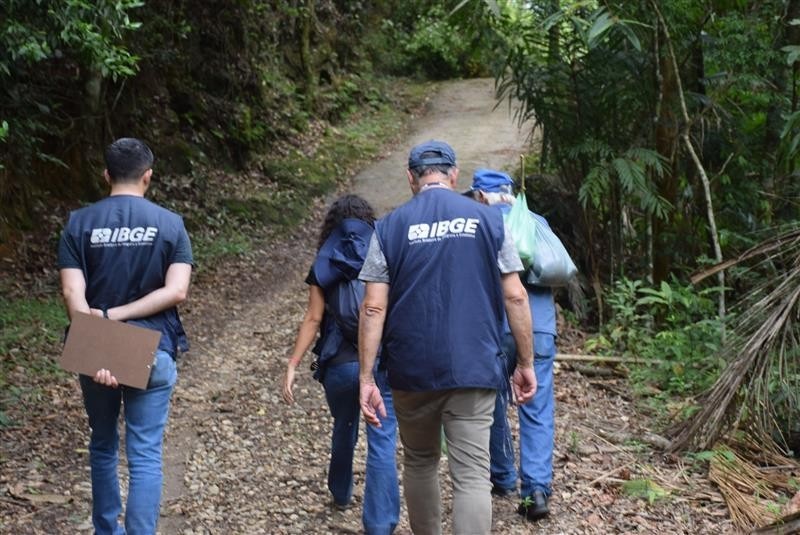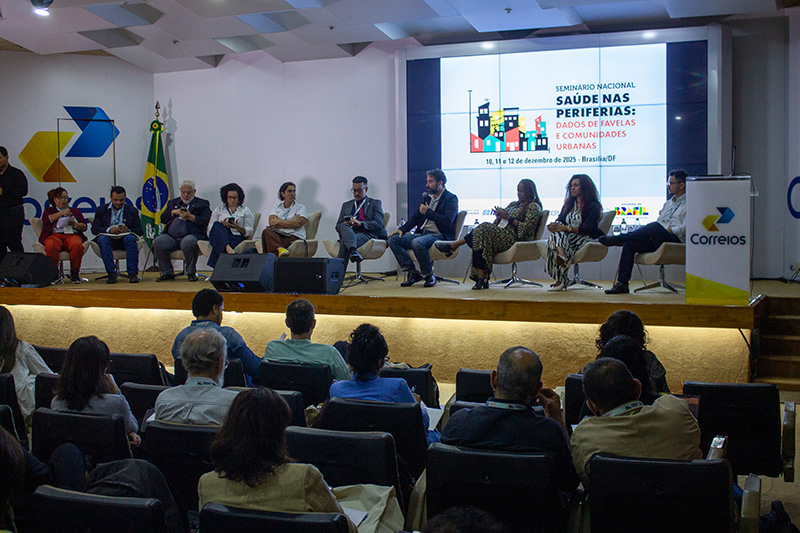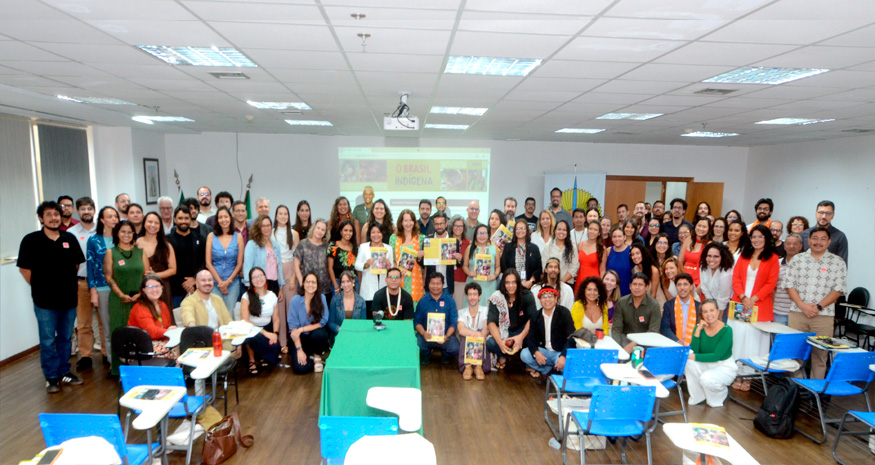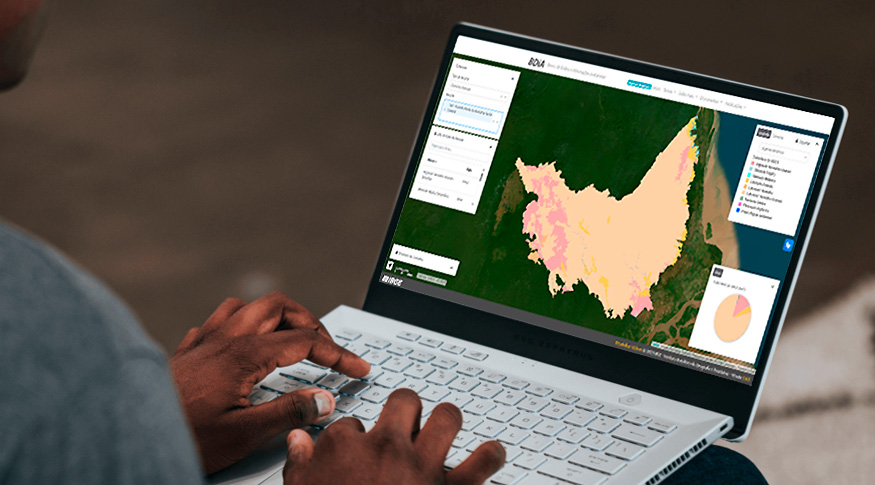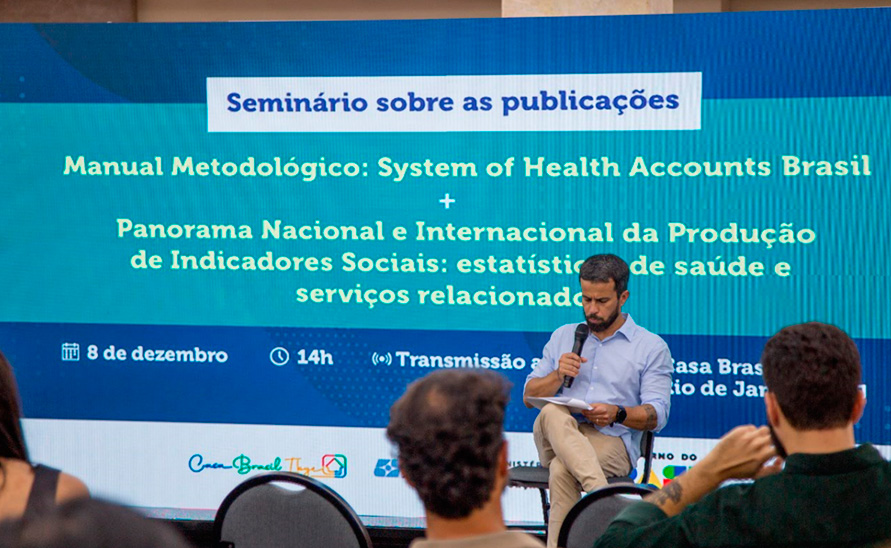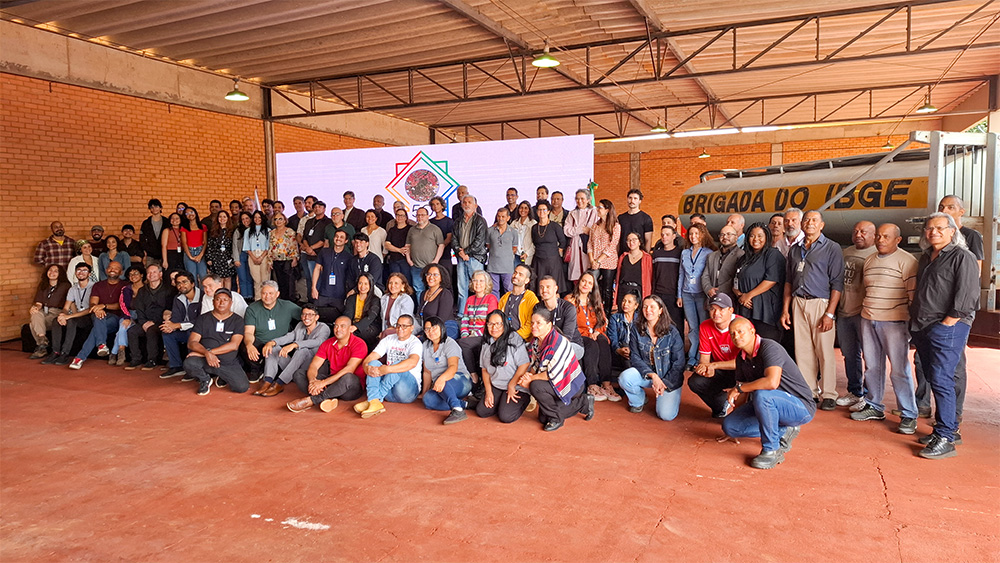UNFPA
In New York, IBGE participates in event of UNFPA
April 29, 2025 10h14 AM | Last Updated: May 02, 2025 01h50 AM
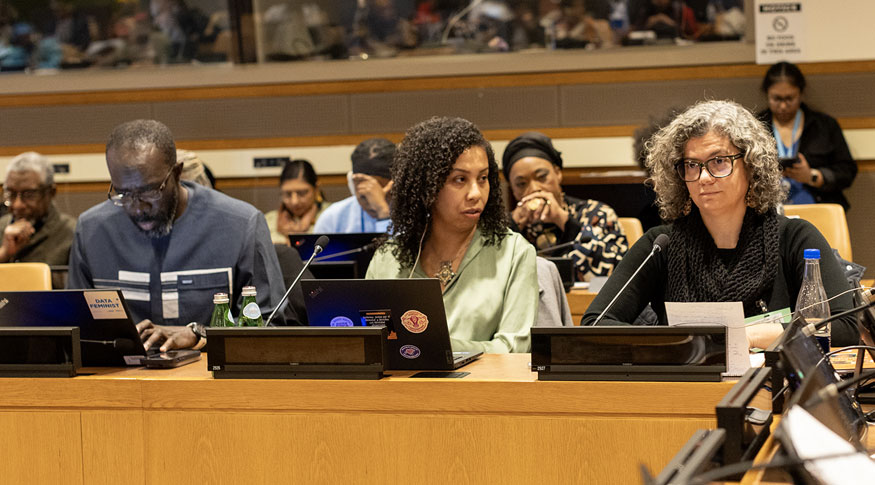
The Brazilian Institute of Geography and Statistics (IBGE) represented Brazil in the international event “Beyond numbers: Leveraging data and evidence to advance equity for people of African descent”, held on April 16 de abril, at the headquarters of the United Nations Population Fund (UNFPA), in New York, during the Fourth Session of the Permanent Forum on People of African Descent.
The main objective of the event was to explore the critical role of data and evidence to fight systemic racism, to promote equity and human rights; to present research projects and evidence; and to discuss best practices in data disaggregation by several development factors, including gender, economic status, race, ethnicity, location and others.
Marta de Oliveira Antunes, Coordinator of the Working Group on Traditional Peoples and Communities, of the IBGE's Directorate of Surveys (DPE) represented the Institute at the event. Shw spoke about the importance of disaggregated data as a basis for more efficient public policies and shared experiences about the 2022 Population Census, which identified and characterized the quilombola population as an ethnical group in Brazil for the first time.
“It was an interesting experience, to present the innovations, lessons learned and benefits for Brazil, about the inclusion of the quilombola ethnicity in the 2022 Population Census. The participants showed a lot of interest and highlighted the innovative character of this experience. The event moderator, Ambassador Martin Kimani, Chair of the UN Permanent Forum on People of African Descent, emphasized the importance of the methodology characterized by national consultation and a local approach, including the presence of guides from the communities. As an essential part of the awareness raisingto enumerators. According to him, that should be made a universal experience."

The event gathered international experts and representatives to discuss how evidence and data are essential to fight racism and the promotion of the rights of people of African descent. And it featured presentations by participants, a discussion panel: Data and Evidence: A essential tool to fight systemic racism and inequalities between people of African descent, and a Q&A session.
The moderator of the event was ambassador Martin Kimani, appointed chair of the UN Permanent Forum on People of African Descent (PFPAD). Also attending the event were the representative of the anti-racism toolkit of the United Nations (UN); the representative of the Working Group on People of African Descent; the representative of the Economic Commission for Latin America and the Caribbean (CEPAL); of the United Nations Population Fund (UNFPA); the African Descendant Network; the African Descendant Institute for Study, Research and Development; representatives of the Civil Society Organizations (OSCs) and Paliamentarians from Latin America (TBC).

About the Permanent Forum on People of African Descent (PFPAD)
Created in August 2021, the Permanent Forum of People of African Descent (PFPAD) is a consulting body within the Councilof Human Rights and of the United Nations system about matters related to racism and the discrimination against people of African descent, a device to improve security, quality of living and means of subsistence for people of African descent.
Among the objectives of the Permanent Forum on People of African Descent are: expand global awareness on gaps and challenges in the development, analysis and dissemination of disaggregated data by race and ethnicity; emphasize the importance of consistent data collection and of evidence-based strategies to fight racism and racial discrimination; highlight best practices in data collection and analysis, as well as the transforming impact of trustworthy data and evidence on the lives and means of subsistence for people of African descent; foster commitment to guarantee sustainable funding for the collection, analysis and dissemination of data.



